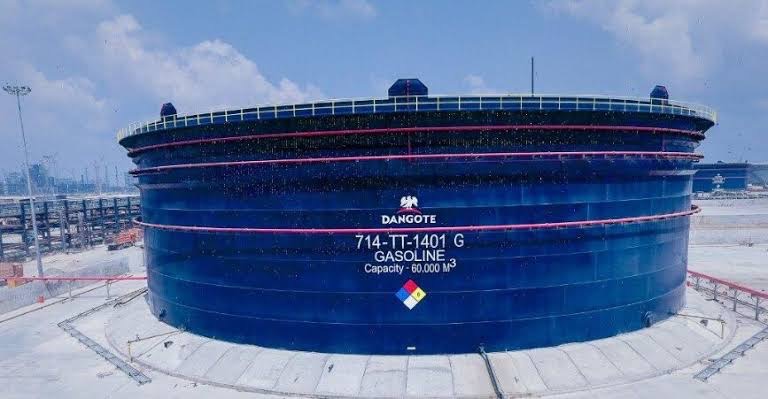KEY POINTS
- Civil society groups praise Dangote Refinery for reducing fuel costs and stabilizing Nigeria’s forex market.
- Diesel prices dropped from about ₦1,700 to ₦1,030 per litre, while petrol fell from ₦1,020 to ₦855.
- Groups urge regulators, industry players, and government to sustain momentum through collaboration and investment in local refining.
A coalition of civil society groups has applauded the Dangote Refinery and Petrochemicals Company for what they describe as a “game-changing” role in easing fuel costs and shoring up Nigeria’s fragile foreign-exchange market.
Speaking at a press conference in Abuja over the weekend, leaders from the Employment for Unemployed Youth Initiative (EUYI) and the Guardians of Democracy and Development Initiative (GoDDI) hailed the $20 billion refinery as a turning point for the country’s energy sector.
The groups credited the Lagos-based complex with helping to narrow Nigeria’s dependence on imported fuels, create jobs, and improve the trade balance.
More visibly, they said, the refinery has provided relief to consumers facing volatile pump prices since the government scrapped the fuel subsidy in May 2023.
Diesel, which once spiked to about ₦1,700 per litre, now averages around ₦1,030, while petrol has dropped from ₦1,020 to roughly ₦855, according to the coalition’s data. “The refinery’s operations are delivering tangible benefits for ordinary Nigerians,” the groups said.
Private Investment Seen as Key to Sustaining Gains
Beyond applauding Dangote, the coalition urged policymakers, regulators and industry players to work together to ensure the new momentum is not lost.
They called on stakeholders to support responsible private investment, stressing that only constructive engagement and lawful cooperation can address persistent supply-chain bottlenecks and shield vital infrastructure from disruption.
The groups encouraged rival marketers to consider fresh investment in refining and local sourcing, pointing to opportunities for partnerships that could broaden supply options and enhance competition in the sector.
While noting that the Dangote facility is a “world-class investment,” they warned that lasting progress depends on both public and private actors building trust. “Continued cooperation is essential to consolidate these gains,” they said.



